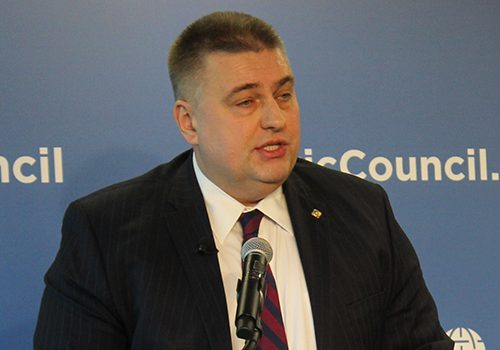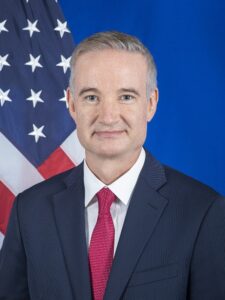Strategically located between Europe and Russia, Belarus has leaned largely toward Moscow, but at the same time has maintained a good relationship with Ukraine and has sought at least some improvement in a relationship with the West. The growing tensions between Minsk and Moscow, caused by the disputes over imports and gas supplies and Belarus’ rejection to establish a Russian airbase in its territory, gives Minsk additional incentives to bolster a tie with the West.
At this event, the Atlantic Council’s Eurasia Center hosts a panel discussion, which will explore the elements and challenges of Belarusian security and its implications for NATO and Russia. The panel discussion is joined by General Benjamin Hodges, Lieutenant General (Retired), US Army Europe; Pershing Chair in Strategic Studies, Center for European Policy Analysis; Dr. Oleg Kravchenko, deputy minister of Foreign Affairs, Republic of Belarus, Ambassador Alexander Vershbow, distinguished fellow, Transatlantic Security Initiative; Scowcroft Center for Strategy Security, Atlantic Council; Dr. Celeste Wallander, president and CEO, US-Russia Foundation; and moderated by Dr. Michael Carpenter, senior director, Penn Biden Center for Diplomacy and Global Engagement; senior fellow, Eurasia Center, Atlantic Council.
Further reading
Related experts

The Eurasia Center’s mission is to promote policies that strengthen stability, democratic values, and prosperity in Eurasia, from Eastern Europe in the West to the Caucasus, Russia, and Central Asia in the East.



